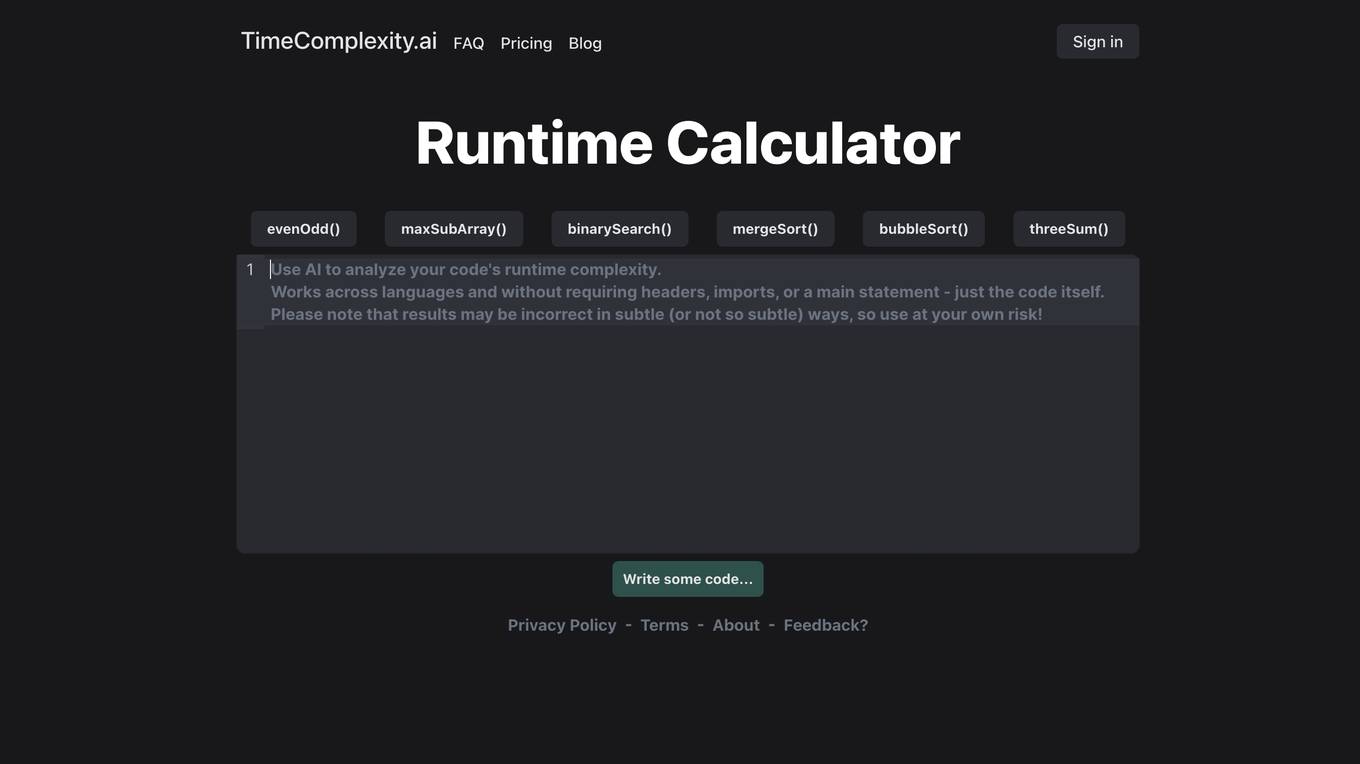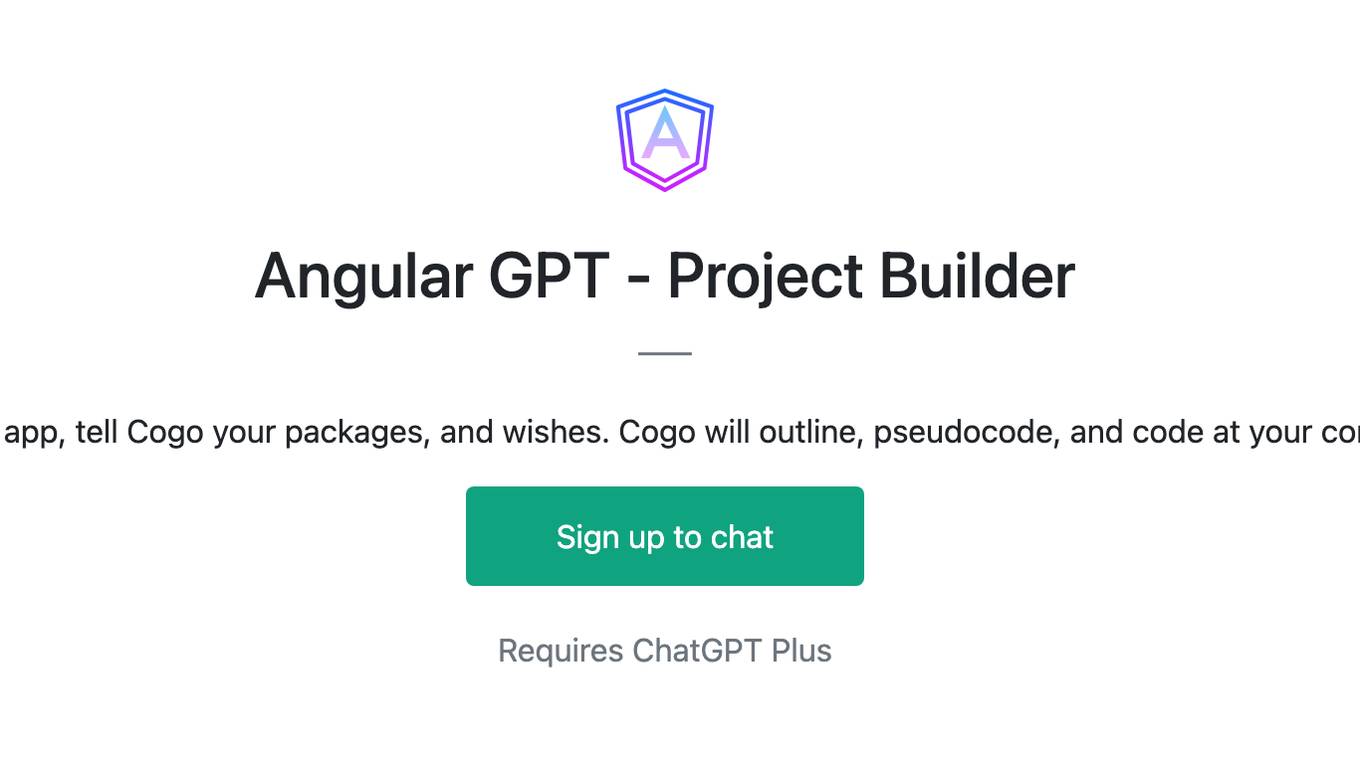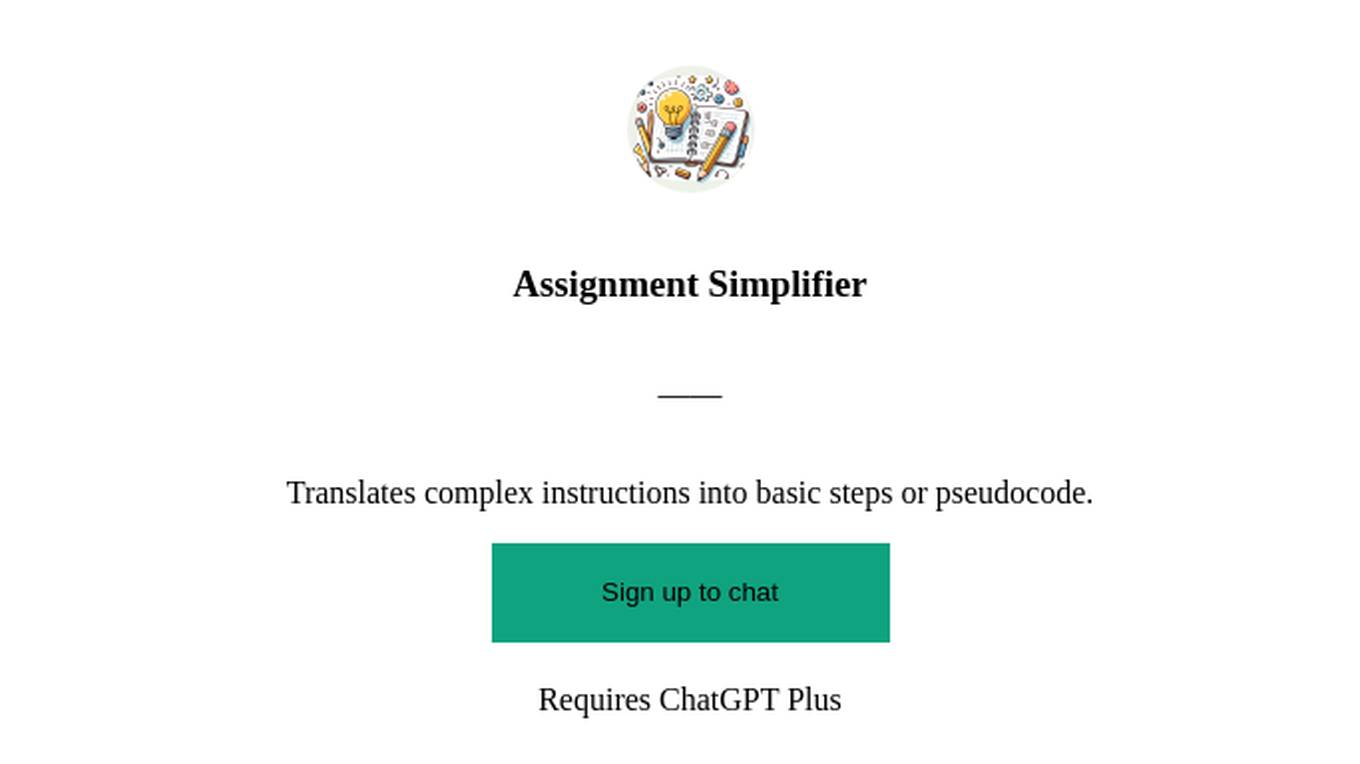AI tools for pseudocode maker
Related Tools:

PseudoEditor
PseudoEditor is a free online pseudocode editor and compiler designed to simplify the process of writing pseudocode. It offers dynamic syntax highlighting, code saving, error highlighting, and a fast compiler to help users write and test pseudocode efficiently. The platform aims to provide a smooth writing experience, allowing users to write pseudocode up to 5 times faster than traditional methods. PseudoEditor is the first and only browser-based pseudocode editor, offering a range of features to enhance the coding experience.

TimeComplexity.ai
TimeComplexity.ai is an AI tool that helps users analyze the runtime complexity of their code. It can be used across different programming languages without the need for headers, imports, or a main statement. Users can input their code and get insights into its time complexity. However, it is important to note that the results may not always be accurate, so caution is advised when using the tool.

Angular GPT - Project Builder
Dream an app, tell Cogo your packages, and wishes. Cogo will outline, pseudocode, and code at your command.


